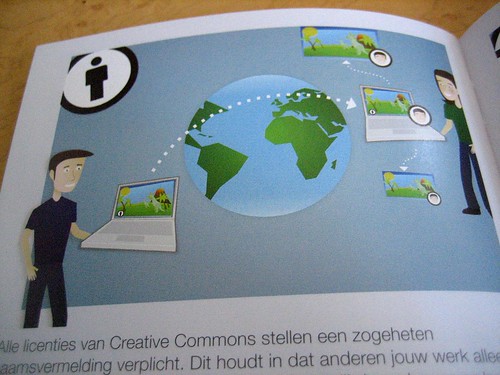
Image by Creative Commoners
Is your organization or corporation lagging behind in adoption of new collaboration and productivity tools?
You’re in good company apparently – the Microsoft and Accenture ‘Oil and Gas Collaboration Survey 2009,’ conducted by PennEnergy in partnership with the Oil & Gas Journal Research Center, found that although many execs in this industry feel that social media tools produce better results, the companies by and large are still using old methods to retain and share knowledge.
- More than 70% of the engineers, geo-scientists and business managers polled believe that collaboration and knowledge-sharing are important for driving revenue, cutting costs and contributed to the health and safety of workers.
- 40% of them believe company adoption of new social media tools, including social networking sites, would boost productivity on the job.
- Only one out of four reports leveraging these newer tools to capture and share important information internally.
- Most respondents stated that their organizations are still using older means of collaboration, such as face-to-face meetings, e-mails and conference calls, even though newer, more sophisticated technology tools are available today.
And the way they’re doing it now is certainly not optimum: 61% of respondents said that they spend at least one hour each working day searching for information and knowledge sources necessary for their jobs.
That’s a lot of wasted hours – do the math. There are an estimated 65,000 engineering professionals in the global oil and gas industry today, and one hour searching for data every day translates into a potential loss of almost 10m people-hours a year among engineers alone, an average net annual loss of $485m for the industry, calculated by the U.S. Department of Labor salary statistics. Ouch!
“When every dollar counts and effective decision-making is crucial, new technologies such as social media tools can help oil and gas industry professionals find information, collaborate and generally be more productive,” says Ali Faramawy, VP Microsoft International.
According to the report Web 2.0 technologies can support the following industry requirements:
- connection with remote geographic locations
- knowledge capture
- knowledge access
- informal knowledge sharing
- joint ventures and team projects, reducing costs and driving incremental business value
Perhaps it’s time to take another look at how social media could improve your internal knowledge management procedures – and your bottom line.
For daily social media links and tips follow me on Twitter

